Michael T. LaCour
Enhanced Knee Kinematics: Leveraging Deep Learning and Morphing Algorithms for 3D Implant Modeling
Aug 02, 2024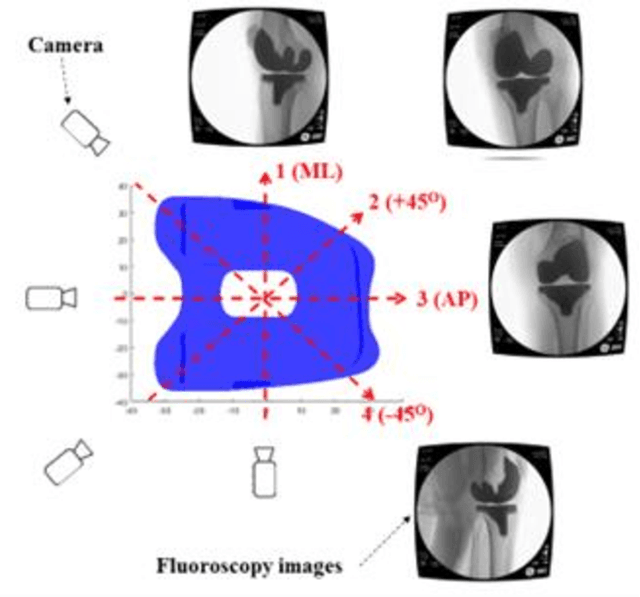
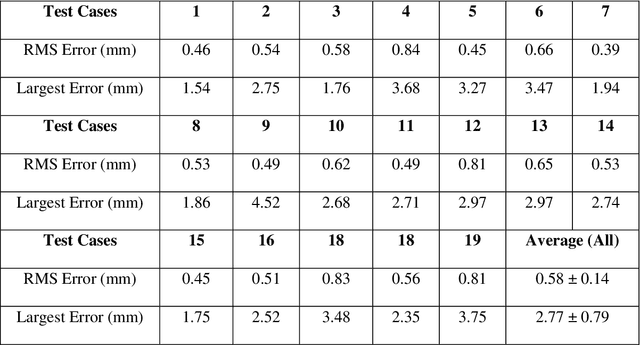
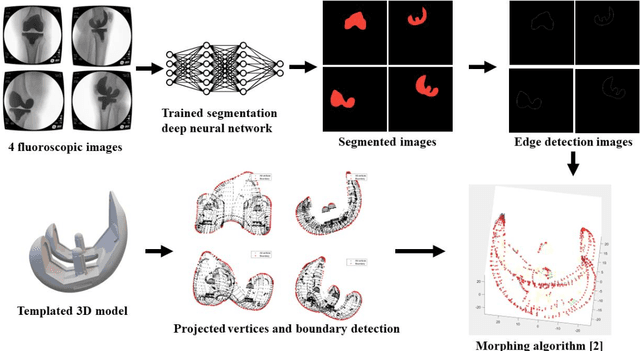
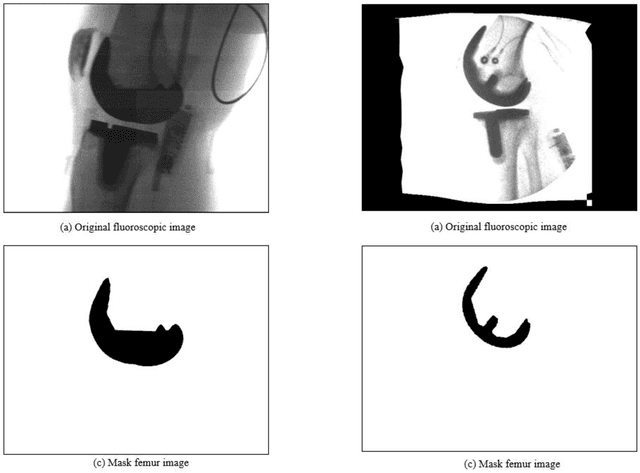
Abstract:Accurate reconstruction of implanted knee models is crucial in orthopedic surgery and biomedical engineering, enhancing preoperative planning, optimizing implant design, and improving surgical outcomes. Traditional methods rely on labor-intensive and error-prone manual segmentation. This study proposes a novel approach using machine learning (ML) algorithms and morphing techniques for precise 3D reconstruction of implanted knee models. The methodology begins with acquiring preoperative imaging data, such as fluoroscopy or X-ray images of the patient's knee joint. A convolutional neural network (CNN) is then trained to automatically segment the femur contour of the implanted components, significantly reducing manual effort and ensuring high accuracy. Following segmentation, a morphing algorithm generates a personalized 3D model of the implanted knee joint, using the segmented data and biomechanical principles. This algorithm considers implant position, size, and orientation to simulate the knee joint's shape. By integrating morphological data with implant-specific parameters, the reconstructed models accurately reflect the patient's implant anatomy and configuration. The approach's effectiveness is demonstrated through quantitative evaluations, including comparisons with ground truth data and existing techniques. In 19 test cases involving various implant types, the ML-based segmentation method showed superior accuracy and consistency compared to manual segmentation, with an average RMS error of 0.58 +/- 0.14 mm. This research advances orthopedic surgery by providing a robust framework for the automated reconstruction of implanted knee models. Leveraging ML and morphing algorithms, clinicians and researchers gain valuable insights into patient-specific knee anatomy, implant biomechanics, and surgical planning, leading to improved patient outcomes and enhanced quality of care.
An Automated Real-Time Approach for Image Processing and Segmentation of Fluoroscopic Images and Videos Using a Single Deep Learning Network
Jan 23, 2024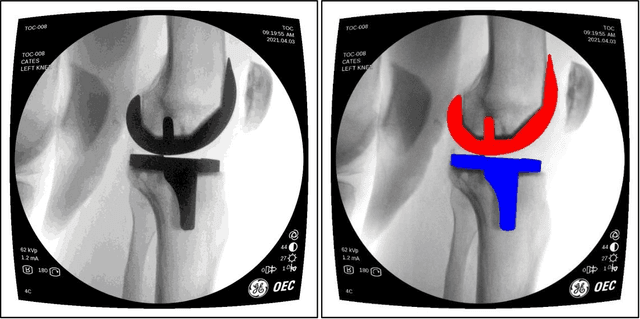

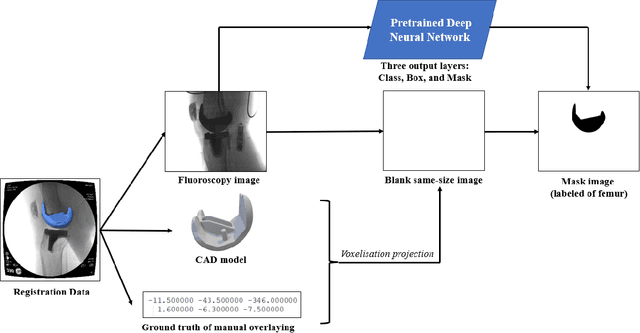
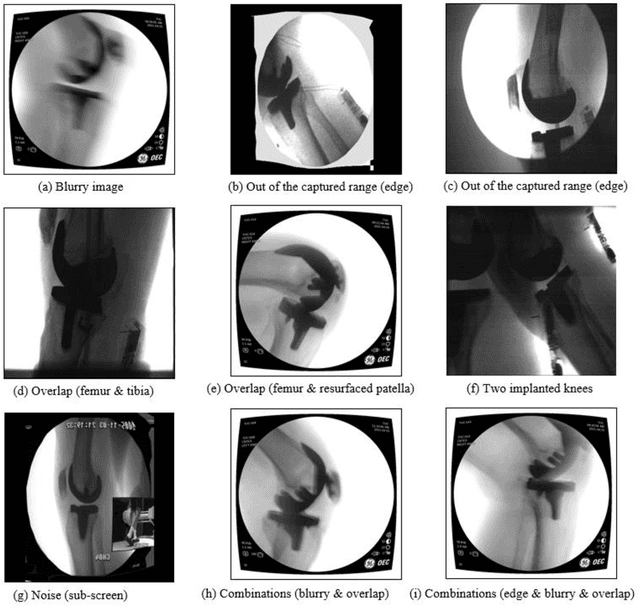
Abstract:Image segmentation in total knee arthroplasty is crucial for precise preoperative planning and accurate implant positioning, leading to improved surgical outcomes and patient satisfaction. The biggest challenges of image segmentation in total knee arthroplasty include accurately delineating complex anatomical structures, dealing with image artifacts and noise, and developing robust algorithms that can handle anatomical variations and pathologies commonly encountered in patients. The potential of using machine learning for image segmentation in total knee arthroplasty lies in its ability to improve segmentation accuracy, automate the process, and provide real-time assistance to surgeons, leading to enhanced surgical planning, implant placement, and patient outcomes. This paper proposes a methodology to use deep learning for robust and real-time total knee arthroplasty image segmentation. The deep learning model, trained on a large dataset, demonstrates outstanding performance in accurately segmenting both the implanted femur and tibia, achieving an impressive mean-Average-Precision (mAP) of 88.83 when compared to the ground truth while also achieving a real-time segmented speed of 20 frames per second (fps). We have introduced a novel methodology for segmenting implanted knee fluoroscopic or x-ray images that showcases remarkable levels of accuracy and speed, paving the way for various potential extended applications.
 Add to Chrome
Add to Chrome Add to Firefox
Add to Firefox Add to Edge
Add to Edge